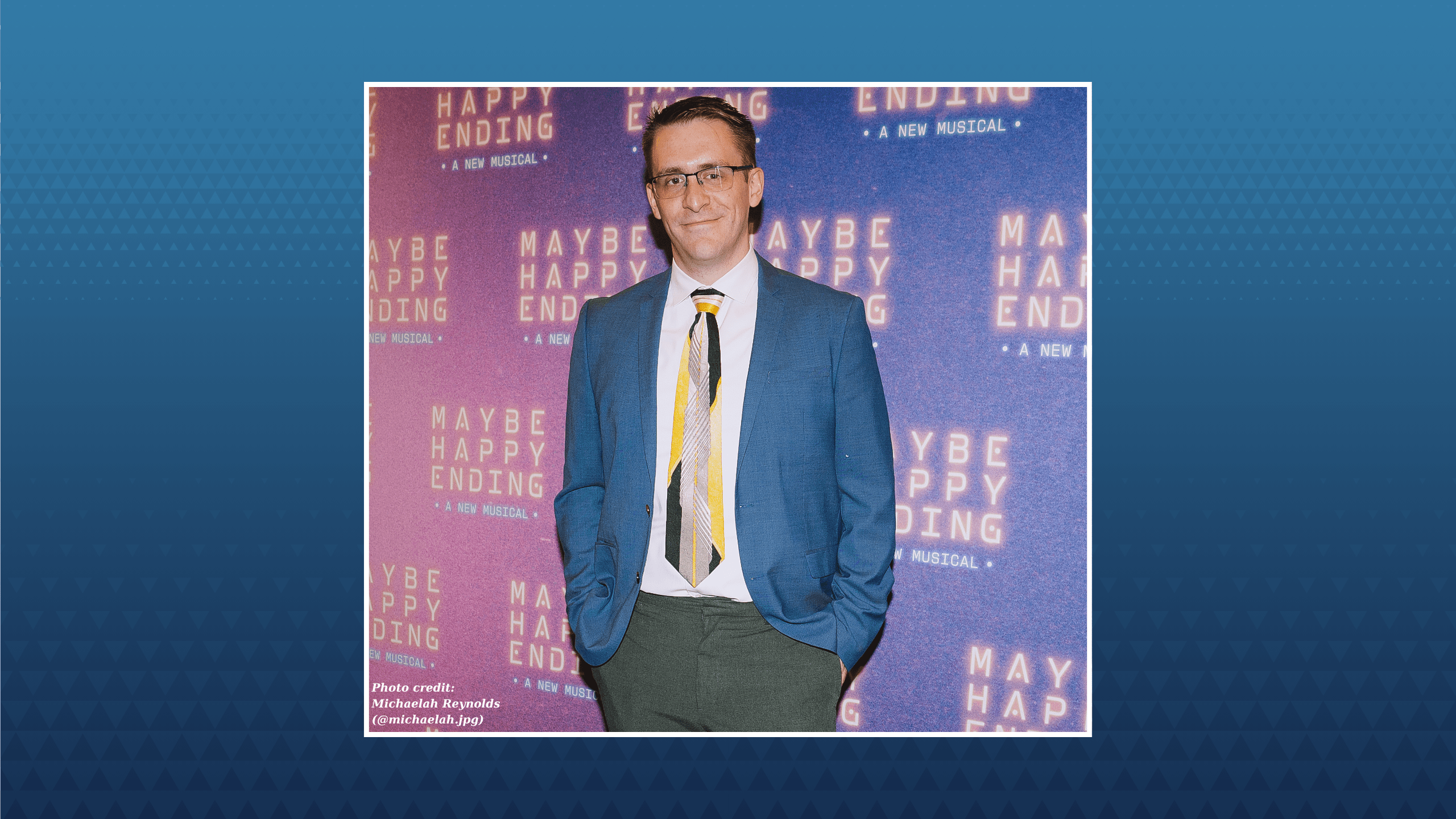Through close faculty relationships and hands-on learning, John Albert Harris ’14 discovered the confidence to turn creativity into impact—and music into a life on Broadway
When the cast and crew of Maybe Happy Ending took the stage at Radio City Music Hall to accept the Tony Award for Best Musical, Butler University alumnus John Albert Harris ’14 was in the audience—beaming. As a co-producer of the show, Harris had just watched years of artistic risk-taking, collaboration, and belief in original storytelling culminate in Broadway’s highest honor.
“It’s given a lot of legitimacy to my taste in projects,” he says. “I’ve always been drawn to original stories and composed music—work that’s written from scratch by people who have studied the craft. Seeing that recognized on Broadway means a lot.”
Long before the lights of Broadway, though, Harris was a Butler music composition student experimenting with sound, story, and identity—guided by professors who encouraged him to take creative risks and find his voice through hands-on learning.
“The support from the professors in the School of Music was instrumental to my success at Butler,” Harris says. “They listened to what I wanted to focus on and supported that without question.”
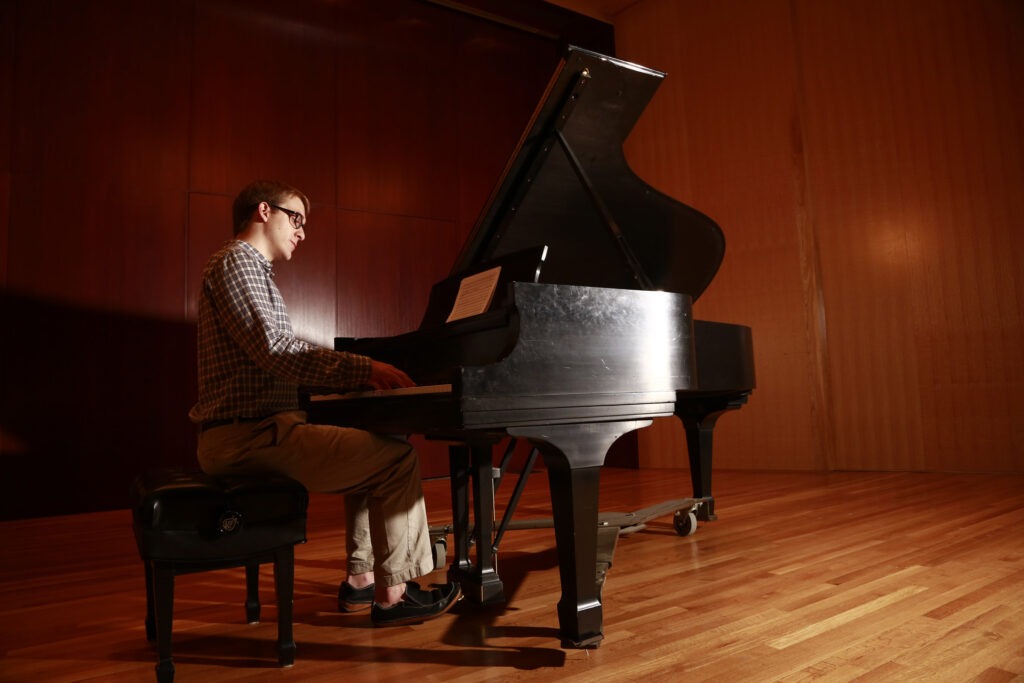
Originally from the Chicago area, Harris applied to Butler “almost on a whim,” he recalls. But during his campus visit, a meeting with composition professors Dr. Frank Felice and Dr. Michael Schelle sealed his decision. “I was so enamored with them,” he says. “I thought, ‘I have to go and learn from these people.’”
At Butler, Harris describes himself as a “leaf in the wind,” still exploring whether to pursue performance, composition, or something entirely different. That began to shift midway through his sophomore year when he chose to focus fully on writing original music. “I decided to stop studying other people’s music and devote all my time to creating my own,” he says. “That kind of freedom—and trust—from my professors made all the difference.”
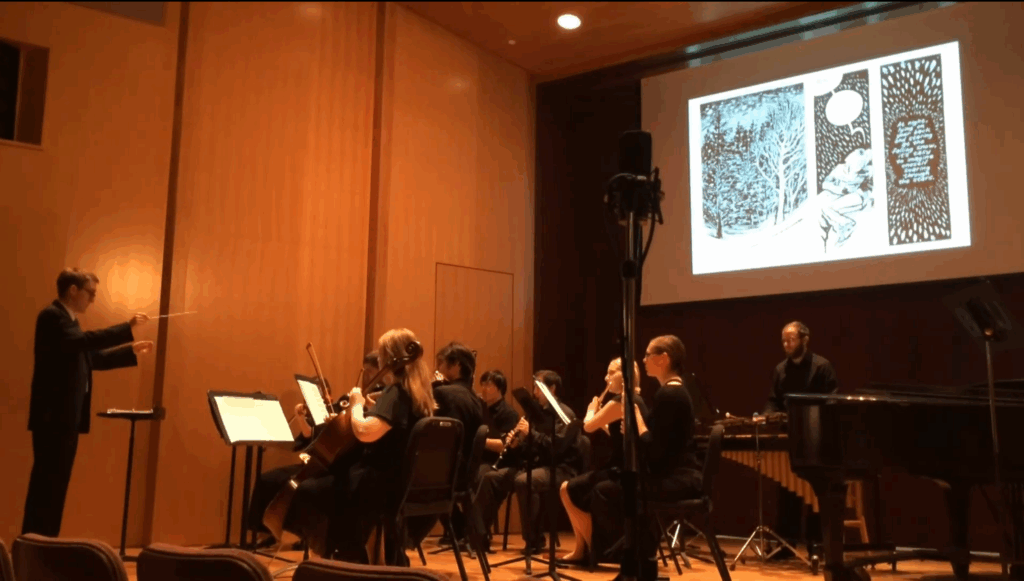
That creative trust led to one of Harris’s most formative experiences: his Butler Summer Institute project. The idea was ambitious—adapt a graphic novel into a live multimedia performance featuring projected panels, a full orchestral score, and voice actors. With encouragement and guidance from faculty, Harris composed the score, organized the performers, and produced the entire show.
“It was so exciting to put together a large-scale project that involved so much collaboration,” he says. “That was probably my first foray into producing, even though I didn’t realize it at the time.”
After graduating, Harris earned his master’s degree in music composition at the University of Miami’s Frost School of Music, where he received a full scholarship and taught undergraduate courses. But he soon discovered his passion wasn’t only in composing—it was in bringing other artists’ visions to life.
“I was losing interest in composing my own work,” he admits. “But I was obsessed with my friends’ music and wanted to help them get it produced. So I started calling myself a producer—even before I fully knew what that meant. That decision changed everything.”
That boldness quickly paid off. A chance introduction at a play reading led to Harris’s first major opportunity—co-producing Puffs, an Off-Broadway comedy that became one of the most licensed plays in the United States. From there, Harris built a network in New York’s theater community and eventually signed on to co-produce Maybe Happy Ending, an original musical that had previously seen success in South Korea.
“I watched a recording of the show and was moved to tears,” he says. “It was the best new musical I’d seen in over a decade. I knew I had to be part of it.” Less than a year later, Maybe Happy Ending premiered on Broadway and earned six Tony Awards, including Best Musical.
Today, Harris works as a theatrical literary agent in New York City, representing composers, lyricists, playwrights, designers, and directors who are shaping the next generation of musical theater. He says he’s drawn to “hidden gems”—artists who may not yet have the spotlight but are creating meaningful, original work.
“I love finding the next big writers before they hit it big,” he says. “There are so many incredible artists writing quietly in their bedrooms, and I want to help get their work into the world.”
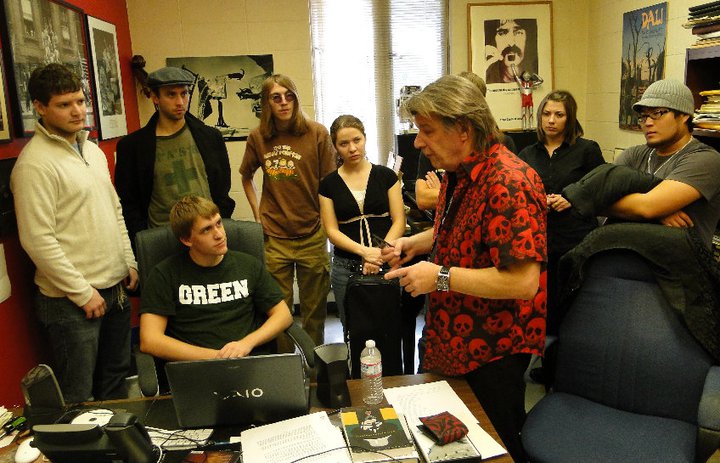
That passion for nurturing creativity traces directly back to Butler, where supportive faculty encouraged him to take risks, collaborate across disciplines, and see himself as both artist and leader. It’s a lesson he now passes on to emerging creators.
“If you want to find a job, go to parties,” he says with a laugh. “That’s where you meet people, make friends, and learn what others are working on. Your network is everything.”
Looking back, Harris sees his Butler years as the start of a lifelong transformation—one defined not only by artistic growth but by the relationships and experiences that shaped his confidence.
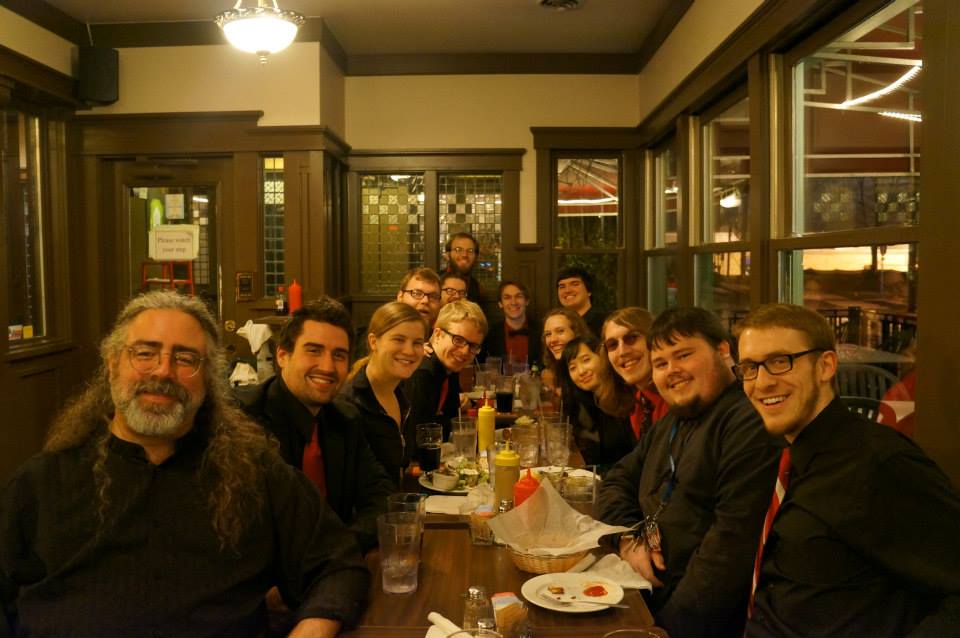
“The professors at Butler didn’t just teach me how to compose—they taught me how to create, collaborate, and believe in myself,” he says. “Everything I’ve done since has grown out of that.”
At Butler, transformation begins with opportunity—and grows through collaboration.
John Albert Harris’s journey from student composer to Tony Award–winning producer is proof that hands-on learning and meaningful mentorship can turn creative curiosity into a lifelong calling.
To learn more about John’s work, visit www.johnalbertharris.com or follow him on Instagram @johnalbertharris.


